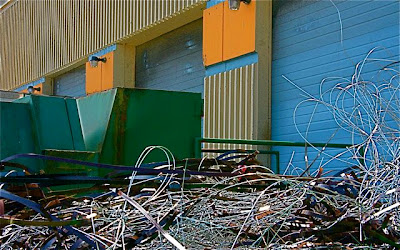"Give beauty back, beauty, beauty, beauty, back to God, beauty’s self and beauty’s giver."
from "The Leaden Echo and the Golden Echo" by Gerard Manley Hopkins"
(thanks, Rudi)
Sunday, April 27, 2008
Saturday, April 26, 2008
Friday, April 25, 2008
Wednesday, April 23, 2008
Eric vs David. Or not.
Chariots Of Fire
God made me for a purpose: He made me for China.
But He also made me fast.
And when I run, I feel His pleasure.
To give it up would be to hold Him in contempt.
Psalm 147:10,11
His delight is not in the strength of the horse,
nor his pleasure in the speed of a runner;
but the Lord takes pleasure in those who fear him,
in those who hope in his steadfast love.
God made me for a purpose: He made me for China.
But He also made me fast.
And when I run, I feel His pleasure.
To give it up would be to hold Him in contempt.
Psalm 147:10,11
His delight is not in the strength of the horse,
nor his pleasure in the speed of a runner;
but the Lord takes pleasure in those who fear him,
in those who hope in his steadfast love.
Chariots Of Fire (again)
You came to see a race today. To see someone win. It happened to be me. But I want you to do more than just watch a race. I want you to take part in it. I want to compare faith to running in a race. It's hard. It requires concentration of will, energy of soul. You experience elation when the winner breaks the tape - especially if you've got a bet on it. But how long does that last? You go home. Maybe you're dinner's burnt. Maybe you haven't got a job. So who am I to say, "Believe, have faith," in the face of life's realities? I would like to give you something more permanent, but I can only point the way. I have no formula for winning the race. Everyone runs in her own way, or his own way. And where does the power come from, to see the race to its end? From within. Jesus said, "Behold, the Kingdom of God is within you. If with all your hearts, you truly seek me, you shall ever surely find me." If you commit yourself to the love of Christ, then that is how you run a straight race.
Friday, April 18, 2008
Sunday, April 13, 2008
Tuesday, April 08, 2008
Thursday, April 03, 2008
Anne C. Fisher, "Art, spirituality, healing."

I met Frank Warren after seeing PostSecret at Artomatic - a Washington, D.C., arts festival. A father, husband, and business owner, he has no formal art background or training and refers to himself as an "accidental artist." Four years ago Frank experienced an emotional crisis in his life. Developing a passion for postcard art projects was how he worked through it. It became his personal experience of healing through art.
Why is PostSecret so appealing? It is because Frank has tapped into the universal stuff of being human - the collective, often unconscious level of existence that defies age, culture, gender, economics, and so on. From this universal level come great and timeless works of art: theater, music, dance, visual art, and literature. At this universal level lie the depths of spirituality: mythological tales, sacred text, and ritual. Also from this universal level comes direct access to healing and personal transformation. Although in Western cultures we act as though there is a separation, there is no separation of the arts from spirituality or healing.
The project invites us into the collective level to heal ourselves, healing that has several characteristics similar to psychotherapy. For example, the prominent themes in PostSecret mirror some of the reasons people are drawn to psychotherapy: seeking relief from suffering; sharing painful experiences (especially concerning difficulties in relationships or feelings of isolation); expressing shame and anxiety about aspects of self that are difficult to face; and admitting one's impulses, fears, and fantasies. Although many of the secrets are about psychological pain, the grist for the mill in psychotherapy, others are hopeful, optimistic, or even humorous. Hope and humor are certainly important aspects of the psychotherapeutic process as well.
In PostSecret, by being asked to share a secret, we are invited to journey into our depths, perhaps into the unconscious mind, beneath the level of our awareness at the moment. Perhaps we venture into the preconscious where our secrets are already on the verge of awareness and emergence, or maybe into the conscious, where our secrets are being held back, ready to be let out under the right circumstances. As in psychotherapy, we are provided with a projective screen onto which anything can be placed and viewed. In this case, it is the postcard.
Also, as in psychotherapy, there is an action element in PostSecret. There is something that we can do - fill out the postcard. Reading the postcards is also form of taking action. Something might change. There is hope.
Anne C. Fisher, Foreword to PostSecret, compiled by Frank Warren
Wednesday, April 02, 2008
Subscribe to:
Posts (Atom)









































